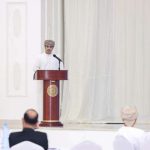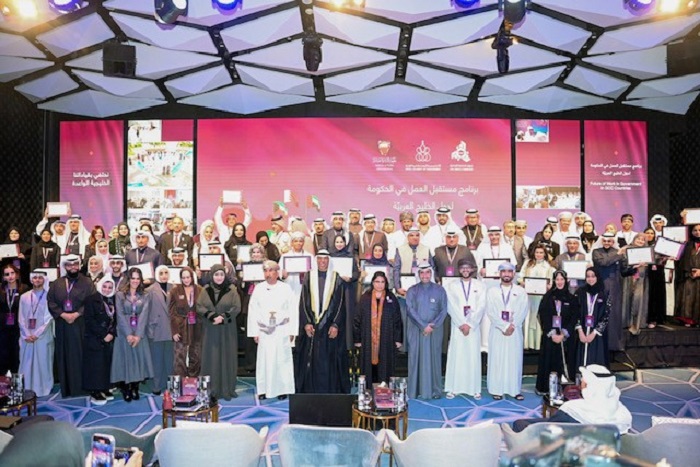The Royal Academy of Management (RAM) recently completed the “Future of Work in Government for GCC Countries” programme, the first of its kind in the region. This initiative was aimed at second-line government leaders from Oman and other Gulf Cooperation Council (GCC) countries. Implemented in collaboration with the Institute of Public Administration (IPA) in Bahrain, the Civil Service Commission (CSC) of Kuwait, and Saïd Business School at the University of Oxford, the programme aimed to enhance Gulf integration in government development and support national visions for the future. The graduation ceremony for participants took place in Kuwait during the final module, attended by senior officials and experts from various GCC countries.
The programme consisted of ten virtual modules delivered in Arabic, focusing on strategic and leadership topics relevant to government operations. These included public administration, project management, business analytics, digital transformation, change management, team leadership effectiveness, and adapting to the digital economy. Dr. Ali bin Qassim Al Lawati, President of the Royal Academy of Management, emphasized the importance of mid-level leadership development, highlighting the critical role these leaders play in implementing senior leadership strategies and achieving organizational objectives.
During the closing ceremony of the programme, Dr. Ali bin Qassim Al Lawati reiterated the Academy’s commitment to fostering Gulf cooperation through innovative learning solutions tailored to leaders at all levels. He emphasized the importance of equipping leaders with the necessary skills to face challenges, develop innovative solutions, improve institutional performance, and support the realization of national visions in the GCC countries. The programme aimed to empower participants to deliver performance that meets the aspirations of the Gulf people and advances sustainable development in the region.
Participants in the programme lauded its value in promoting innovation and efficiency in government work. They recognized the Academy’s pivotal role in advancing executive education and fostering institutional integration in the Gulf region. The programme provided an integrated learning experience that blended modern theories with practical applications, equipping leaders with the skills needed to navigate the challenges of the digital economy and develop innovative solutions for their organizations. By focusing on mid-level leadership development, the programme aimed to enhance institutional performance and support the realization of various national visions in the GCC countries.
Overall, the “Future of Work in Government for GCC Countries” programme by the Royal Academy of Management was a groundbreaking initiative aimed at second-line government leaders in Oman and other GCC countries. The programme focused on enhancing leadership capabilities, promoting innovation and efficiency in government work, and supporting the realization of national visions in the GCC region. Through a series of virtual modules covering strategic and leadership topics, the programme provided participants with the skills needed to adapt and thrive in the digital economy, implement senior leadership strategies, and achieve organizational objectives. The programme’s emphasis on mid-level leadership development underscores the vital role that these leaders play in driving sustainable and innovative transformation in government operations across the GCC.











